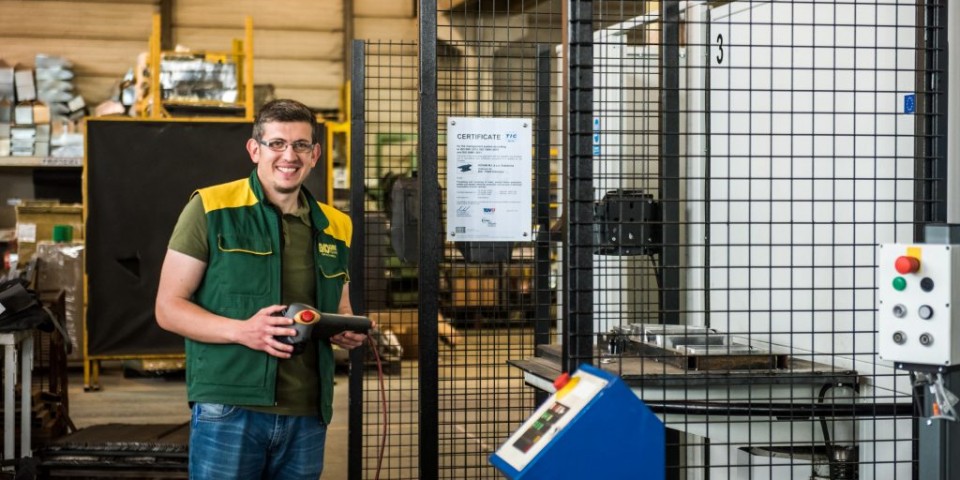
Concrete results of the EU ProLocal Programme: BiH companies operating in accordance with international standards
EUR 4 million of the European Union grant funds allocated to 57 small and medium-sized enterprises and 25 development partnerships have enabled, among other, the international certification for 23 BiH...
EUR 4 million of the European Union grant funds allocated to 57 small and medium-sized enterprises and 25 development partnerships have enabled, among other, the international certification for 23 BiH enterprises. The certification raised the quality of their business operations to an international level and enabled access to new markets.
ISO/TS 16949:2009 certificate has enabled the company Sur-Tec Eurosjaj from Konjic to start providing a new service within the automotive industry. The new service is the production of metal coatings for vehicle parts.
“The majority of our key buyers work for the automotive industry, where this particular standard is the precondition for concluding new jobs. The buyers demand a guaranteed production quality, standardization of work and price transparency, and this certificate provides exactly that”, says Aida Badžak, the financial director of this company from Konjic, a leader in BiH market in the field of metal surface protection. “The production process is defined by the standard through more than 200 points in order to be able to obtain the highest quality of the product. That is why we are now in a position to respond to the requirements in the field of metal coating”, concludes Badžak.
By supporting the certification of enterprises with grants awarded through EU ProLocal, the European Union has contributed to strengthening the quality of business operations of SMEs and increasing their efficiency.
“Working in accordance with the international standards is an important factor for sustainable economic development in BiH which is being supported by the European Union. The companies have committed themselves to strengthening the system of quality control of both, products and services, and have introduced a more efficient monitoring of their business processes and operational costs. All this lead undoubtedly to new markets and creation of new jobs”, said Richard Maša, the Head of Cooperation at the EU Delegation to BiH.
The certification of systems, products and workers
23 BiH companies from the sector of metal processing, wood processing and agribusiness have met the conditions for acquiring a total of 45 certificates in different areas.14 companies have acquired the quality management certificates, enabling them for better business operations by increasing the work efficiency and quality of products and services, reducing the costs and human errors, while 10 companies have completed the certification procedure for the CE mark. The CE mark is the guarantee of the EU quality for metal products and metal constructions, thus enabling these companies in exporting to this attractive market.
The company Pavković Paneli from Široki Brijeg is also EU market export oriented, they are currently in the final stage of negotiations with Germany, Slovenia and Croatia regarding the export of panels made in accordance with the quality standard for sound and thermal insulation ISO 12567-1.
The companies have also acquired the certificates in the field of environmental protection, energy efficiency and safety at work, which will reduce the number of injuries and increase the work productivity.
“The application of the international quality standards has become a key requirement for participation of companies in many global value chains. Therefore, we believe that the funds allocated through the EU ProLocal are in fact the investments in companies’ long-term commitment to continuous progress, business consistency and customer satisfaction”, said EU ProLocal Grant Manager Dr Gligor Stojkov.
The European Union finances EU ProLocal with EUR 9 million along with the 4 million provided by the German Government. Programme provides support to local self-government and economic development in BiH and is being implemented by the German GIZ.
